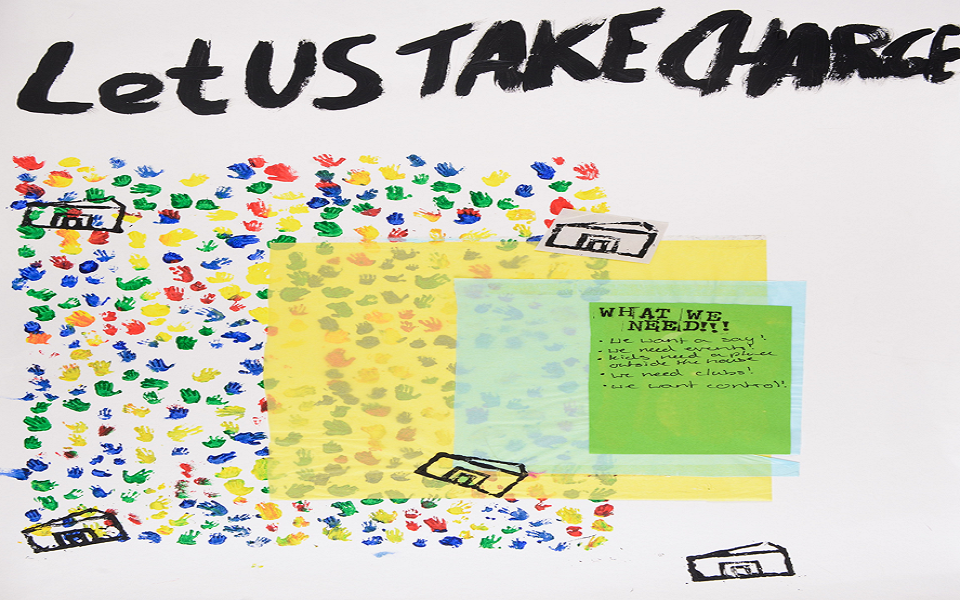Addressing health inequalities is a key issue for decision makers and professionals working with young people. But how much is actually understood about young people’s health inequalities and are the actions we take to reduce inequality based on the latest evidence? In this blog post, we share findings from a recent research roundtable event hosted by AYPH on the topic of young people’s health inequalities.
A main aim of our health inequalities policy programme is to share and amplify relevant research and evidence. We want to understand what work has already been done to understand inequalities in young people’s health outcomes so we recently hosted a research roundtable, bringing together academics from across the UK working in this area.
Research on young people’s health inequalities is expanding
Interesting and thought provoking examples of research exist across the UK. We heard from a range of projects tackling different aspects and using a range of innovative methods to hear young people’s views.
NIHR School for Public Health Research’s project ‘enabling children and young people’s involvement in whole system action to reduce inequalities in the social determinants of health’ involved 42 young people (aged 13-21) in focus group discussions. Young people identified two major factors impacting their health: barriers to eating healthily and accessing safe spaces and poor housing conditions.
‘Utopia now!’ research from King’s College London heard from young people in South London. Young people reported feeling a sense of entrapment and lack of hope for their futures, as they struggle to access support services and they don’t feel like they belong in their neighbourhood where gentrification has taken place.
The University of Glasgow’s Creative Insights project aims to explore young people’s understandings of health inequalities and co-produce policy insights for change. Thirty nine young people (aged 14-21) took part in participatory arts-based research in Glasgow and Leeds. Young people supported policy solutions including universal basic income and improved housing solutions.
The University of East London’s ‘Living in Limbo’ project conducted a rapid evidence review, interviews, survey data and an inquiry workshop to explore the impact of Covid-19 on the delivery of Youth Access’ support services for young people. Findings show that young people have low levels of confidence and more support is needed for young people with mental health concerns, invisible disabilities, LGBTQ+ issues and homelessness.
What can we learn about health inequalities from young people’s experiences?
Across the studies, some cross-cutting themes emerged and were discussed in the session:
- Health inequalities are driven by economic inequalities but young people often feel that it is their individual responsibility to be healthy as adolescents are often seeking to demonstrate agency and self-control over their lives. Addressing poverty is crucial to reducing health inequalities, alongside targeted support and interventions.
- Young people are able to discuss the social determinants of health in great detail, as they can see and understand changes happening around them in their local communities which may have an impact on their health.
“We send out food to those people in our community that can’t afford the bare necessities – not everyone can actually have access to all them things. It just depends on the circumstances that we’re in.” – young person involved in Creative Insights research
- Young people are innovators and activists and throughout the different research projects they have developed tools, solutions and recommendations for policy change, which should be taken forward.
- Young people have faced huge social upheavals during Covid-19, which have emphasised the close relationship between social lives and health for their age group. There is a sense that many young people are struggling with confidence, a lack of hope for their future and how they relate to each other, and that this impacts on their physical wellbeing.
- Local authorities play a crucial role in providing safe spaces for young people and places for young people to be healthy. Policy solutions must address the cuts to local authority budgets which have led to reductions in youth services in recent years. Youth services can facilitate young people’s participation in decision-making and having their say in policies.
We’re very grateful to the research teams who met with us to share ideas, and we look forward to continuing to unpack the meaning of health inequalities to young people. If you would like to find out more about the event, the research projects or our health inequalities policy programme please get in touch: rachael@ayph.org.uk
Rachael McKeown – Inequalities Policy Fellow

